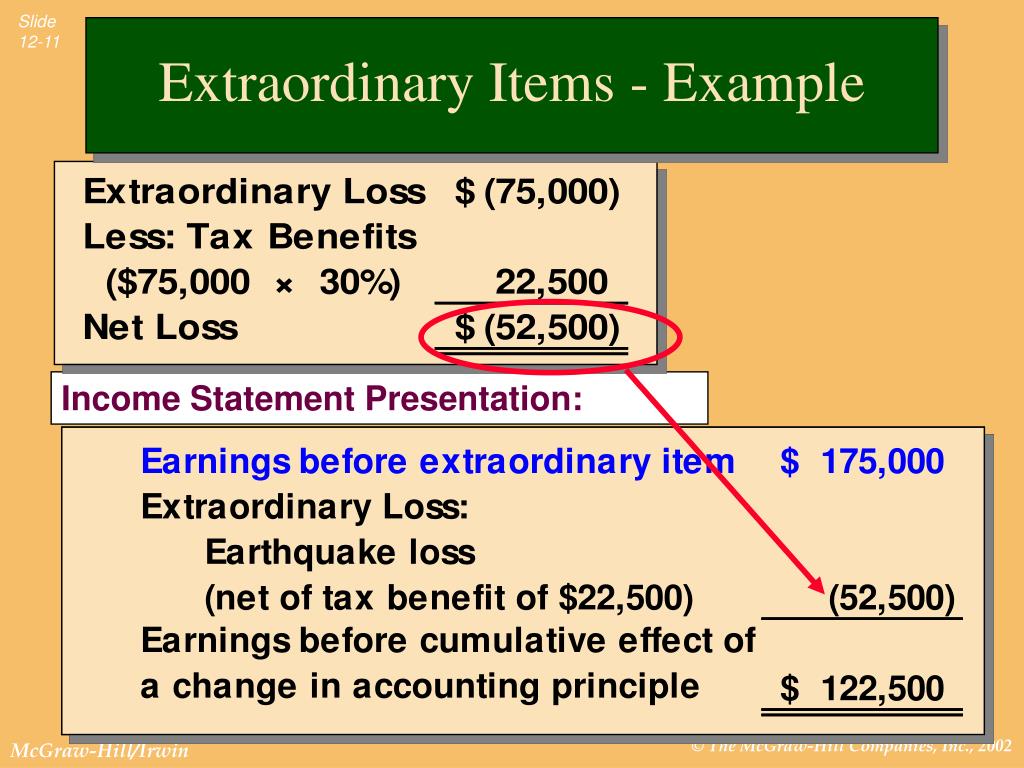
The terms nonrecurring item and nonrecurring charge can be used interchangeably and refer to a one-time charge from an unpredictable event that is not expected to persist. It represents a one-time expense involving an unpredictable event and is not part of a firm’s normal, day-to-day operations. This could include a wide array of items, such as abandoning property, accruals on long-term contracts, disposing of a component of an entity, effects of a strike, foreign currency exchange, intangible assets, inventories, receivables and adjustments on long-term contracts.Ī nonrecurring item refers to an entry that appears on a company's financial statements that is unlikely to happen again. The FASB specifically states that most types of write-offs, write-downs, gains or losses should not be treated as extraordinary items. Just as many examples of accounting items qualify as extraordinary, many others do not qualify. Gains or losses due to accounting charges are also fair game, as are charges to write down the value of goodwill. The disposal of a plant or major piece of equipment could easily qualify. Specific examples can include charges from discontinued operations, such as a write-down that occurred when a company decided to shut down or sell an operation.

Again, the unusual and infrequent natures are primary considerations. FASB statement No.145 helps stipulate the accounting charges that can rightfully be considered extraordinary. Another key stipulation is that the item is material, meaning that it has a significant impact on a firm’s profitability and should therefore be broken out separately.Īccountants spend considerable time determining whether an item should be qualified as extraordinary. More detailed explanations of these types of items will be included in the notes to the financial statements in company annual reports or financial filings with the Securities & Exchange Commission (SEC).

Basically, an item is deemed extraordinary if it is not part of a company’s ordinary, day-to-day operations. The term "extraordinary item" refers to gains or losses in a company's financial statements that are infrequent and unusual.

A savvy analyst will separate these items from recurring ones, and will stand a much better chance at predicting the future than one who simply looks at the bottom-line earnings companies must report in their financial statements. A key part of this analysis is to understand items that qualify as extraordinary items or nonrecurring items. When it comes to analyzing a company, successful analysts spend considerable time trying to differentiate between accounting items that are likely to recur going forward from those that most likely will not. To get ahead as a financial analyst, you must become very skilled at using past information to make a reasonably accurate prediction of the future.


 0 kommentar(er)
0 kommentar(er)
